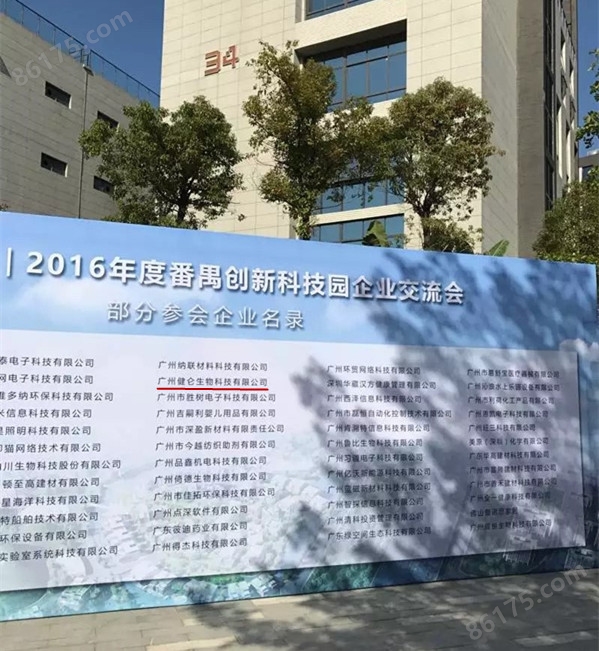其他品牌 品牌
代理商厂商性质
广州市所在地
Cellabs贾第虫病毒酶联免疫吸附测定试剂盒
广州健仑生物科技有限公司
Cellabs公司是一个的生物技术公司,总部位于澳大利亚悉尼。专门研发与生产针对热带传染性疾病的免疫诊断试剂盒。其产品40多个国家和地区。1998年,Cellabs收购TropBio公司,进一步巩固其在研制热带传染病、寄生虫诊断试剂方面的位置。
Cellabs贾第虫病毒酶联免疫吸附测定试剂盒
该公司的Crypto/Giardia Cel IFA是国标*推荐的两虫检测IFA染色试剂、Crypto Cel Antibody Reagent是UK DWI水质安全评估检测的*抗体。
【Cellabs公司中国总代理】
Cellabs公司中国代理商广州健仑生物科技有限公司自2014年就开始与Cellabs公司携手达成战略合作伙伴,热烈庆祝广州健仑生物科技有限公司成为Cellabs公司中国总代理商。
我司为悉尼Cellabs公司在华代理商,负责Cellabs产品在中国的销售及售后服务工作,详情可以我司公司人员。
主要产品包括:隐孢子虫诊断试剂,贾第虫诊断试剂,疟疾诊断试剂,衣原体检测试剂,丝虫诊断试剂,锥虫诊断试剂等。
广州健仑生物科技有限公司与cellabs达成代理协议,欢迎广大用户咨询订购。
我司还提供其它进口或国产试剂盒:登革热、疟疾、流感、A链球菌、合胞病毒、腮病毒、乙脑、寨卡、黄热病、基孔肯雅热、克锥虫病、违禁品滥用、肺炎球菌、军团菌、化妆品检测、食品安全检测等试剂盒以及日本生研细菌分型诊断血清、德国SiFin诊断血清、丹麦SSI诊断血清等产品。
欢迎咨询
欢迎咨询2042552662
【Cellabs公司产品介绍】
公司的主要产品有:隐孢子虫诊断试剂,贾第虫诊断试剂,疟疾诊断试剂,衣原体检测试剂,丝虫诊断试剂,锥虫诊断试剂等。Cellabs 的疟疾ELISA试剂盒成为临床上的一个重要的诊断工具盒科研上的重要鉴定工具。其疟疾抗原HRP-2 ELISA检测试剂盒和疟疾抗体ELISA检测试剂盒已经成为医学研究所的*试剂盒。Cellabs产品主要包括以下几种方法学:直接(DFA)和间接(IFA)免疫荧光法,酶联免疫吸附试验(ELISA),和胶体金快速测试。所有产品都是按照GMP、CE标志按照ISO13485。
二维码扫一扫
【公司名称】 广州健仑生物科技有限公司
【】 杨永汉
【】
【腾讯 】 2042552662
【公司地址】 广州清华科技园创新基地番禺石楼镇创启路63号二期2幢101-3室
【企业文化】



此外,小肠还有一种传播速度很快,传播距离较远的蠕动,称为蠕动冲。它可把食糜从小肠始端一直推送到小肠末端。有时还可至大肠,其速度为2~25cm/s。在十二指肠与回肠末端常常出现与蠕动方向相反的逆蠕动。食糜可以在这两段内来回移动,有利于食糜的充分消化和吸收。4.摆动脊椎动物的小肠运动形式之一,主要是纵行肌的节律性舒缩运动,与环状肌也有一定关系。兔小肠的这种收缩波的传播速度为 3~5厘米/秒,周期为2.5秒。此运动一般在肠内容物少的时候出现,但几乎不伴有内容物的移动。欧氏(Auerbach)神经丛与这种运动的调节无多大关系。蝲蛄的后肠也有这种形式的运动。回盲括约肌机能回肠末端与盲肠交界处的环行肌增厚,起着括约肌的作用,称为回盲括约肌。回盲括约肌的主要机能是防止回肠内容物过快地进入大肠,因而有利于小肠内容物的充分消化和吸收。当食物进入胃时,可通过胃-回肠反射引起回肠蠕动,在蠕动波到达回肠末端时,括约肌便舒张、部份小肠内容物由回肠入结肠。此外,回盲括约肌还具有活瓣作用,可阻止大肠内容物向回肠倒流。小肠内容物向大肠的排放,除与回盲括约肌的活动有关外,还与小肠内容物的流动性和回肠与结肠内的压力差有关。小肠运动的调节1.神经调节肠内机械的和化学的刺激作用于肠壁感受器,通过壁内神经丛的局部反射途径可引起小肠平滑肌的蠕动。在一般情况下,迷走神经的传出冲动对整个小肠运动起兴奋作用。交感神经对小肠运动则起抑制作用。但两种神经的效应也依小肠当时的机能状态而异。如果肠肌紧张性已经很高,则无论刺激迷走神经或交感神经,都将对肠肌产生抑制作用;反之,则都产生增强作用。2.激素的作用一般说来,胃泌素和胆囊收缩素可兴奋小肠运动,而胰高血糖素、促胰液素和肾上腺素则抑制小肠运动。食物经过在小肠内的消化作用,已被分解成可被吸收的小分子物质。食物在小肠内停留的时间较长,一般是3~8小时,这提供了充分吸收时间。
In addition, the small intestine also has a fast-moving, long-distance peristaltic movement called peristalsis. It can push the chyme from the beginning of the small intestine to the end of the small intestine. Sometimes it can also reach the large intestine, its speed is 2 ~ 25cm / s. Duodenal and ileal ends often exhibit reverse motility that is opposite to the direction of peristalsis. The restaurant can move back and forth between these two segments, which is conducive to the full digestion and absorption of the restaurant. 4. One of the small intestine movements of the oscillating vertebrates is mainly the rhythmic contraction and contraction of the longitudinal muscles, which is also related to the circular muscles. This type of contraction wave in the small intestine of the rabbit has a propagation speed of 3 to 5 cm/sec and a period of 2.5 seconds. This movement usually occurs when the contents of the intestines are small, but there is little movement of the contents. The Auerbach plexus has little to do with the regulation of this movement. There is also this form of movement in the gut's hindgut. The ileocecal function of the ileocecal sphincter at the junction of the distal ileum and the cecum is thickening and acts as a sphincter, known as the ileocecal sphincter. The main function of the ileocecal sphincter is to prevent the ileal contents from entering the large intestine too quickly, thereby facilitating the full digestion and absorption of the contents of the small intestine. When the food enters the stomach, ileal motility can be caused by a gastro-ileoreflex. When the peristaltic wave reaches the end of the ileum, the sphincter relaxes, and part of the small intestine enters the colon from the ileum. In addition, the ileocecal sphincter also has a flap that prevents the contents of the large intestine from flowing back to the ileum. The discharge of small intestine contents to the large intestine, in addition to the activity of the ileocecal sphincter, is also related to the fluidity of the contents of the small intestine and the pressure difference between the ileum and the colon. Regulation of Intestinal Movements 1. Neuromodulation Intestinal mechanical and chemical stimuli act on intestinal wall receptors, and local reflex pathways in the intramural plexus can cause peristalsis of small intestinal smooth muscle. In general, the outgoing impulses of the vagus nerve are excited by the entire small intestine movement. Sympathetic nerves play an inhibitory role in the movement of the small intestine. However, the effects of the two nerves also depend on the functional status of the small intestine. If the intestinal muscle tone is already very high, whether it stimulates the vagus nerve or the sympathetic nerve, it will have an inhibitory effect on the intestinal muscle; on the contrary, it will have an enhancing effect. 2. The role of hormones In general, gastrin and cholecystokinin stimulate the small intestine, while glucagon, secretin and epinephrine inhibit the small intestine. After digestion in the small intestine, food has been broken down into small molecules that can be absorbed. The food stays in the small intestine longer, usually 3 to 8 hours, which provides sufficient absorption time.